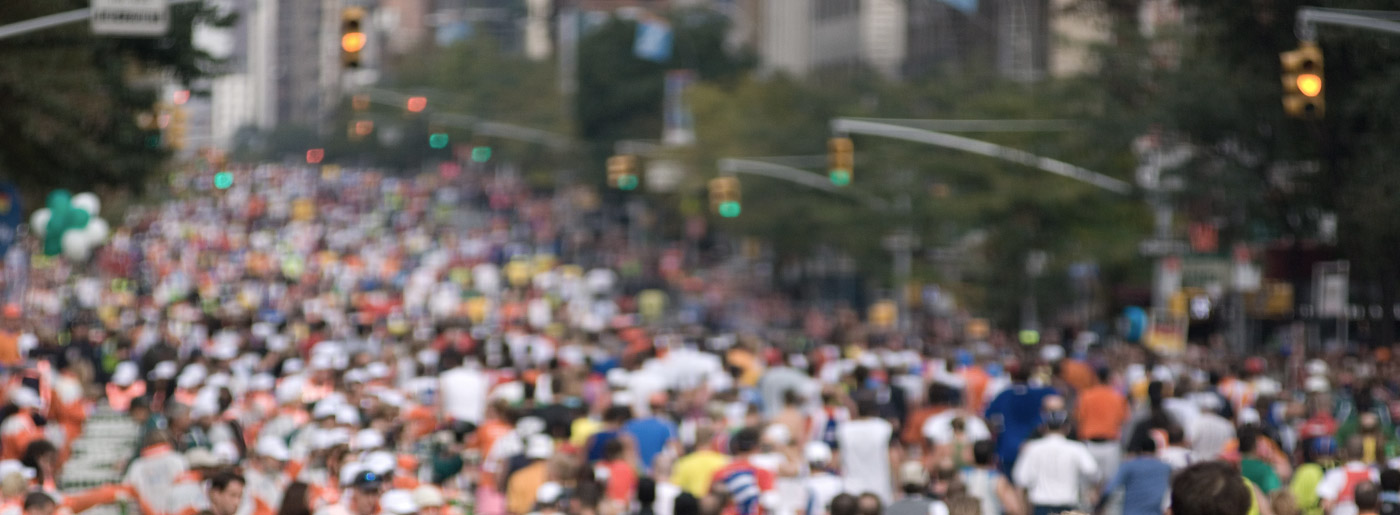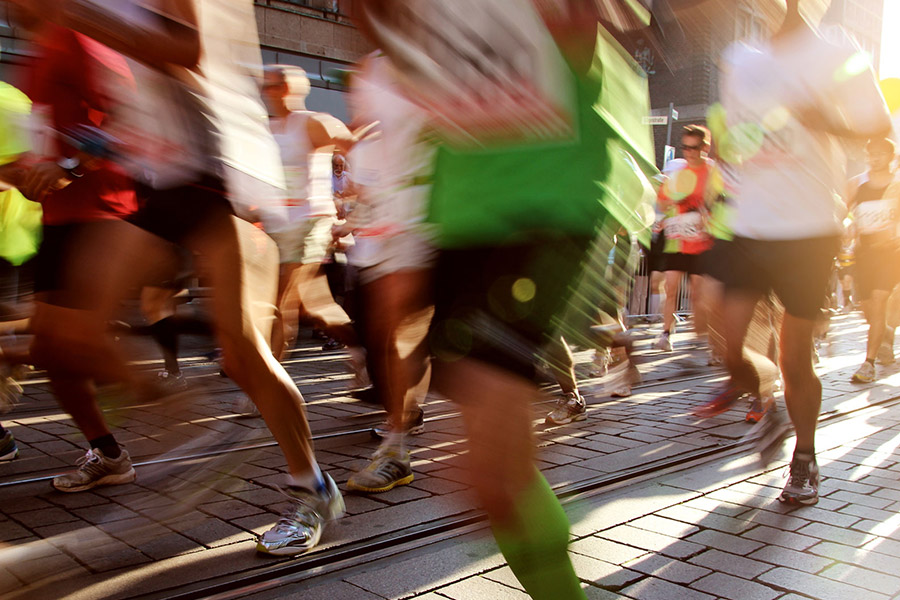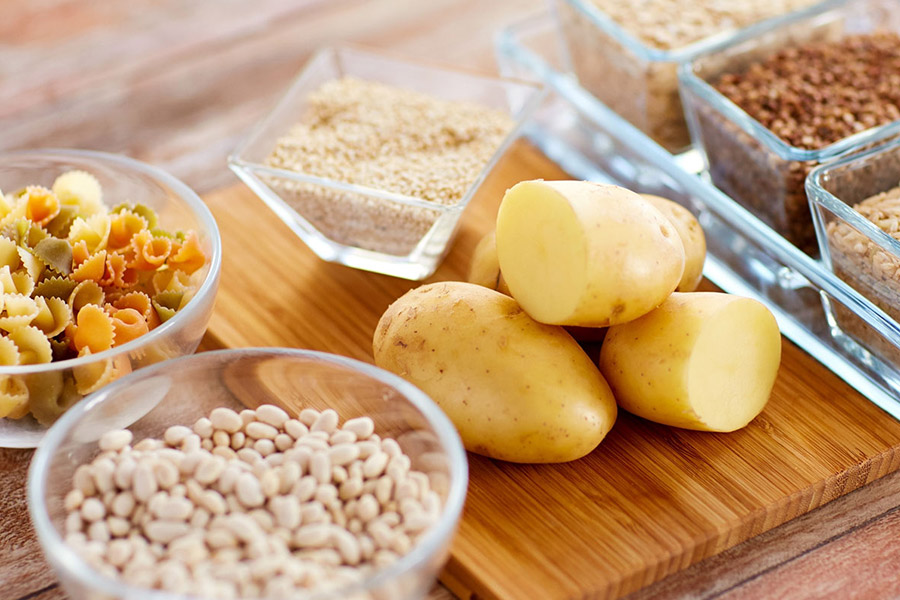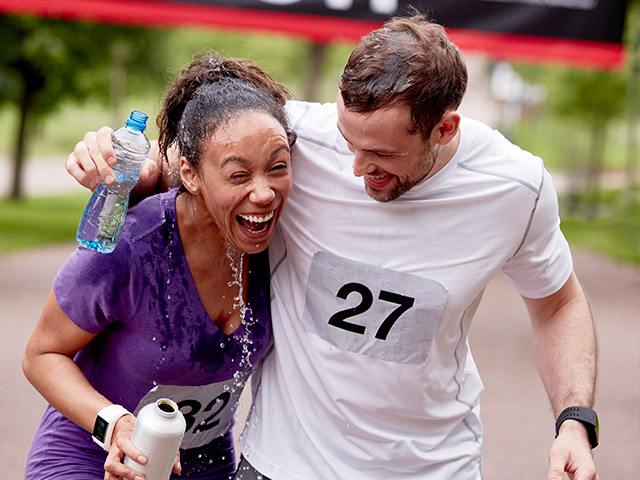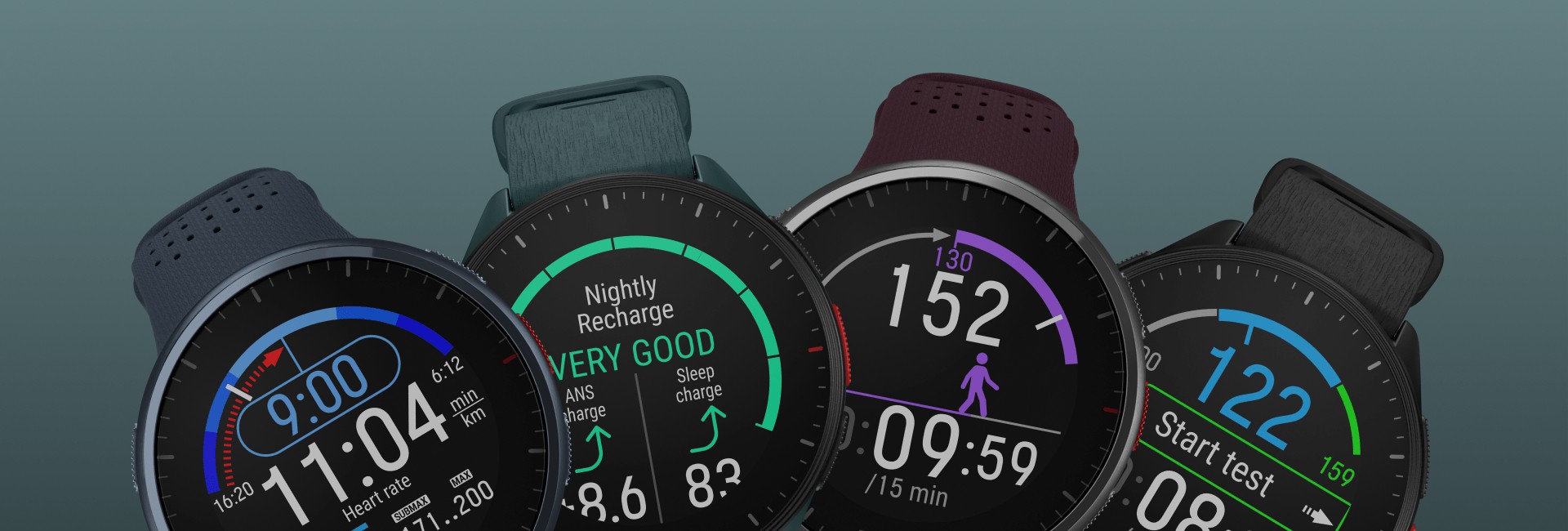Running a marathon is one of the most satisfying accomplishments.
To get a taste of that sweet satisfaction of crossing the finish line, you’ll have to put in some hard work, though. That means consistent training to get the long runs right and tapering during the last weeks leading up to the event.
You’ll also want to find the best ways to give you that final push right before and during your marathon. And let’s not forget, there is life after the marathon and for your own sake, kick-off “the afterlife” with investing in recovery.
Let’s start with a couple of basic marathon concepts to set the scene and then move on to last-minute marathon tips that can make a huge difference on race day.
Hitting the wall
Hitting the wall, also known as ‘bonking’, is the term used to describe running out of energy.
The human body can store a limited amount of energy which will run out if carbohydrates aren’t consumed during prolonged exercise. In long-endurance efforts, like the marathon, this can manifest as sudden fatigue, lack of energy, heavy legs, and/or a sudden drop in pace.
What can you do to avoid it? ‘Hitting the wall’ is not a prerequisite of finishing a marathon! Carbohydrate loading and taking on carbohydrates during the marathon will help to make sure you don’t run out of energy.
Carbohydrate-loading
You may have heard or read about carbohydrate loading. What does it mean? Does it work? Is it relevant and should I be doing it?
Yes, it works, it is relevant for marathon runners and you should employ this strategy.
Increased dietary CHO (carbohydrate) in the 1–7 days prior to exercise is generally associated with enhanced performance when exercise duration exceeds 90 minutes.” – Dr. Asker Jeukendrup
Our understanding of how to implement this has changed quite a lot since the initial research on the subject was carried out on the military back in the 60s. Essentially you’re looking to increase the amount of carbohydrate you consume in the few days leading up to the marathon to ensure your fuel levels are topped up.
Whether you’re an elite or amateur, carbohydrate is the predominant fuel source you use during running. As our our bodies can store only a limited amount of carbohydrates, topping up those fuel storages before the race will help you avoid the onset of fatigue.
10 last-minute marathon tips for BEFORE, DURING, AND RIGHT AFTER THE race
With all this in mind, here are some last-minute marathon tips for the 24 hours before, during, and after your race. These will go a long way to ensure you have an awesome marathon.
To start, the golden rule is: Don’t try anything new on race day! Stick to meals you like and are used to, use the same clothing, socks, shoes and music playlist you’ve used in training. Don’t worry about what anyone else is doing, be confident in your own preparation, knowing what works well for you and stick to that.
1. Eat well the night before
The night before your race eat a meal you enjoy and are used to. Aim for a meal that is rich in carbohydrates, this could include foods like pasta, rice, bread, potatoes.
A good evening meal will ensure you have enough carbohydrates stored in your muscles and liver before race day. Carbohydrates are basically the petrol for your engine on the big day so filling up that tank will reduce the risk of fatigue during the race.
2. Avoid eating too close to bedtime
Aim to have dinner earlier in the evening before the race. Make sure you plan ahead to avoid rushing this meal – giving your body time to digest the meal and relax should hopefully mean you get a good night’s sleep which is, obviously, crucial.
3. Carbohydrates are king at breakfast
Similar to the night before, priming the body with carbohydrates at breakfast is a way to ensure your performance doesn’t suffer during the race. Stick to a breakfast and foods you’re used to and have practiced in training. Porridge, toast, cereal, bagels, and fruit juice are all great choices.
4. Reduce fat and fiber
Keep fiber and fat to a minimum when having your race day breakfast as we know this can cause upset stomachs during the race. This simple tip will ensure you’re in top condition for the challenge ahead and hopefully, reduce the chance of any unnecessary toilet stops.
5. Keep hydrated before the race
Don’t neglect drinking before the race – keep a bottle of drink with you – little and often is key. Dehydration may result in a decline in endurance performance. Even a 2% reduction in your body weight has been shown to negatively impact performance, which can have a negative effect on the intensity of your race.
Dehydration may result in a decline in endurance performance.
6. Take on fuel during the race
As described above, our bodies are like cars – they can’t run on empty. The human body’s carbohydrate reserves can become depleted during the race, therefore aim to consume carbohydrates during the marathon to avoid fatigue. It’s important to understand that whilst there are recommended guidelines, a one-size-fits-all approach simply doesn’t work. Current recommendations suggest consuming 30–60g of carbohydrate per hour. Faster runners may need more than slower runners.
7. Drink little and often
During the race, drink little and often to avoid dehydration and ensure carbohydrate is being consumed. Avoid drinking large volumes of fluid in one go to avoid a stitch or stomach discomfort.
8. Remember to rehydrate and recover after the race
Recovery from a race starts as soon as you cross the finish line. Consuming carbohydrates and electrolytes in the hours after exercise will help to rehydrate. Again, consume fluids little and often and not large amounts in one go.
9. Celebrate with your favorite meal
Eat a meal you enjoy but don’t forget carbohydrates. The meal should be rich in carbohydrates to fill up those reserves which are likely to be significantly depleted having just completed the race. Pasta, spaghetti, rice, potatoes and bread are all great choices to add to your celebratory meal.
10. Finish up with some protein
It’s not just carbohydrate that’s important after the race and the overall recovery process. Combine some protein to help your muscles repair and adapt. Aim for 20–30g of high-quality protein which is equivalent to a palm-size portion of food. Meat, fish, or dairy is advised.
Above all else enjoy your day. Be incredibly proud of what you achieve, and SMILE!
Running a marathon is an incredible experience and one that you will never forget… and you just happen to be running it in one of the greatest cities in the world!
We’re sure these last-minute marathon tips will help. Good luck!
One more thing…
If you run with a sports watch (and you should), make sure you choose and setup the correct training views for the race, so you can see the information that matters the most at a glance. You might want to include metrics like average pace to check if you’re on track with your goal pace, and heart rate to track your effort and know when you and push a little bit harder or hold back to avoid hitting the wall.
With Polar Pacer Pro, you can easily customize different training views for running and always have the right information available.
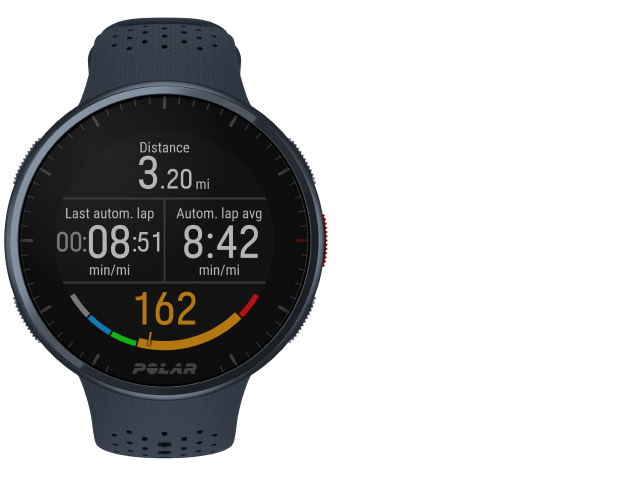
If you liked this post, don’t forget to share so that others can find it, too.
Please note that the information provided in the Polar Blog articles cannot replace individual advice from health professionals. Please consult your physician before starting a new fitness program.
